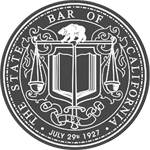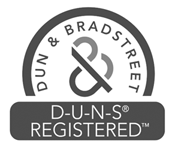Bankruptcy FAQs
WHAT EXACTLY IS BANKRUPTCY? WILL IT WIPE OUT ALL MY DEBTS?
When you file either kind of bankruptcy, a court order called an “automatic stay” goes into effect. The automatic stay prohibits most creditors from taking any action to collect the debts you owe them unless the bankruptcy court lifts the stay and lets the creditor proceed with collections.
Certain debts cannot be discharged in bankruptcy; you will continue to owe them just as if you had never filed for bankruptcy. These debts include back child support, alimony, and certain kinds of tax debts. Student loans will not be discharged unless you can show that repaying the debt would be an undue burden, which is a very tough standard to meet. And other types of debts might not be discharged if a creditor convinces the court that the debt should survive your bankruptcy.
HOW DO I KNOW IF I SHOULD FILE PERSONAL BANKRUPTCY?
- Are you here because you are being sued? A bankruptcy will stop a lawsuit immediately and prevent your creditors from placing a lien on your home or garnishing your hard-earned wages.
- Are you behind on your mortgage or car payments? Are you afraid your home could be foreclosed on, or your car repossessed? If so, Chapter 13 bankruptcy can prevent the foreclosure or repossession from proceeding, allow you to consolidate your mortgage arrears or automobile balance, and make payments on those debts over time through a payment plan. As long as you can make these payments, Chapter 13 can allow you to keep these items. If you wish to surrender the house or car, Chapter 7 bankruptcy can eliminate any remaining balance owed on them after foreclosure or repossession.
- Do credit cards or medical bills have you so deep in debt that it is hard for you to save for the future? If you are only paying the minimum payment on the credit card bills from month to month (generally from two to three percent of the outstanding balance), and the interest rate is only 15%, you will take about 20 years to pay off a $10,000 debt. Do you really want to be in the same financial situation for the next twenty years? Chapter 7 bankruptcy can provide you with a fresh start that you are entitled to under the law and get you out of debt NOW.
WILL I LOSE ANYTHING IF I FILE FOR PERSONAL BANKRUPTCY?
Bankruptcy laws called “exemptions” allow you to keep certain assets like household goods, and even home and car equity. The attorneys at Brownstone Law Group know how to properly claim all of the exemptions you are entitled to, and will make sure that all of your belongings are protected before filing your case.
The reality is that most of us do not have significant equity in our homes or cars. If you have a mortgage against your home or a loan against your car, you may owe more than they are worth. So, the bankruptcy court wouldn’t want to sell your house or car, because after sale there would be no money left over to make a distribution to your creditors. The same goes for your personal property and household goods. Even if your property is worth more than what is owed on it, or is paid in full, in most cases we can use exemptions to protect these items.
You may be more at risk of losing property if you don’t file bankruptcy. Without the protection offered by bankruptcy, creditors can sue you and attach your bank accounts, garnish your wages, and attach and seize your property. As a result, you may miss rent, mortgage or car payments, making it difficult to provide even your most basic necessities.
DOES MY SPOUSE HAVE TO FILE JOINTLY WITH ME?
WHAT IS THE DIFFERENCE BETWEEN CHAPTER 7 AND CHAPTER 13 BANKRUPTCY?
In Chapter 13 bankruptcy, you file a repayment plan with the bankruptcy court to pay back all or a portion of your debts over time. The amount you’ll have to repay depends on how much you earn, the amount and types of debt you owe, and how much property you own.
You lose no property in Chapter 13 bankruptcy, because you fund your repayment plan through your income. In Chapter 7 bankruptcy, you select property you are eligible to keep from a list of state exemptions. Although state exemption laws differ, states typically allow you to keep these types of property in a Chapter 7 bankruptcy.
WHICH SHOULD I USE–CHAPTER 7 OR CHAPTER 13 BANKRUPTCY?
Under the new bankruptcy law, filers whose incomes are higher than the median income for a family of their size in their state may not be allowed to file for Chapter 7 bankruptcy if their disposable income, after subtracting certain allowed expenses and required debt payments, would allow them to pay back some portion of the unsecured debt over a five-year repayment period.
Also, if you have secured debts of more than $1,149,525 and unsecured debts of more than $383,175, for example, then you cannot use Chapter 13 bankruptcy.
Most people who file for bankruptcy choose to use Chapter 7, if they meet the eligibility requirements; Chapter 7 is a popular choice because, unlike Chapter 13, it doesn’t require filers to pay back any portion of their debts.
However, Chapter 13 might be a better choice, depending on your situation. For example, if you are behind on your mortgage and want to keep your house, you can include your missed payments in your Chapter 13 plan and repay them over time. In Chapter 7, you would have to make up the whole past due amount right away – and you might lose your house, if your equity exceeds the exemption amount available to you.
WHEN DO I GET RELIEF FROM CREDITOR HARASSMENT?
WILL I BE ABLE TO RENT AFTER I FILE PERSONAL BANKRUPTCY?
CAN I GET CREDIT AFTER FILING PERSONAL BANKRUPTCY?
You are probably visiting this site because you already have more outstanding debt than you have the ability to pay. So, arguably, you already do not have credit. Filing bankruptcy eliminates most, if not all of your debts, thereby reducing your debt-to-income ratio, which can improve your ability to borrow money in the future.
Some financial institutions actively solicit business from people who have filed. You see, lenders are in business to make money by lending you money and charging you interest. They look to minimize their risk by offering loans to consumers with the ability to repay those loans. If you have lots of other debts in the way, you look like a high risk borrower. Once you have a clean slate and no other debts to prevent repayment of your new loan, you look like a much better credit risk.



